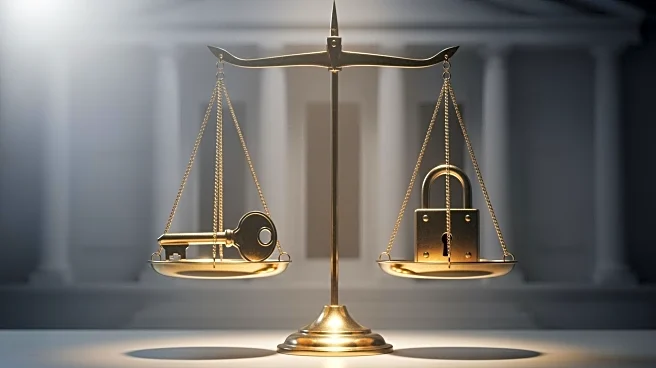What's Happening?
Recent reports have highlighted that Immigration and Customs Enforcement (ICE) agents have detained at least 170 U.S. citizens over the past few months. This figure, according to ProPublica, is likely an undercount due to the lack of government tracking
on such incidents. The detentions have raised significant concerns, as some individuals were held for days without access to legal representation. Among those detained were nearly 20 children, including two battling cancer. The situation has sparked discussions about the treatment of U.S. citizens by federal immigration authorities and the potential violations of their legal rights.
Why It's Important?
The detainment of U.S. citizens by ICE raises critical questions about civil liberties and the oversight of federal agencies. This issue is significant as it touches on the fundamental rights of citizens, including the right to legal counsel and protection from unlawful detention. The broader implications could affect public trust in immigration enforcement agencies and prompt calls for policy reforms. Stakeholders such as civil rights organizations and lawmakers may push for increased transparency and accountability within ICE to prevent future occurrences and ensure the protection of citizens' rights.
What's Next?
The revelations may lead to increased scrutiny of ICE practices and potential legislative action to address the oversight of detaining U.S. citizens. Advocacy groups and legal experts are likely to demand investigations into these incidents and seek policy changes to safeguard citizens' rights. There may also be calls for improved tracking and reporting mechanisms to ensure accountability and prevent similar situations in the future.
Beyond the Headlines
The detainment of U.S. citizens by ICE could have long-term implications for immigration policy and civil rights in the United States. It may prompt a reevaluation of the balance between national security and individual freedoms, influencing future legislative and judicial actions. The ethical considerations surrounding the treatment of detained individuals, especially vulnerable populations like children, could lead to broader societal debates on immigration enforcement practices.
















